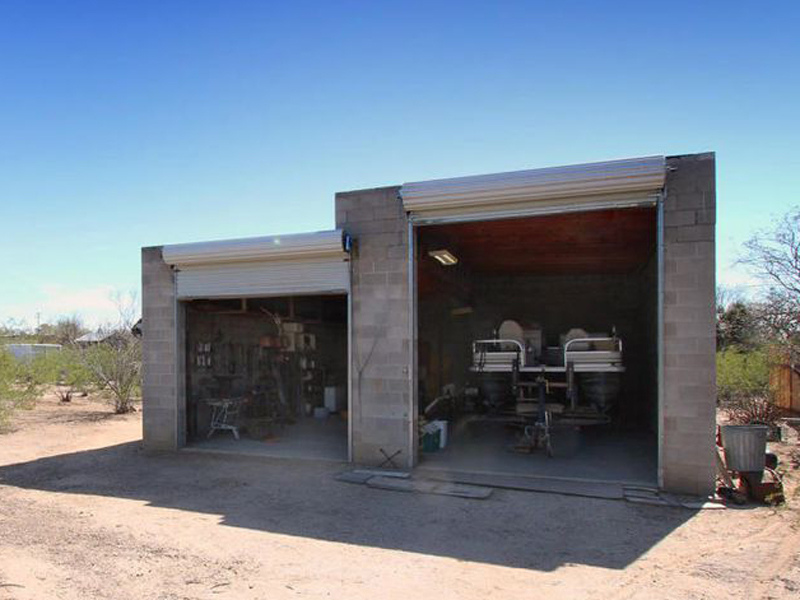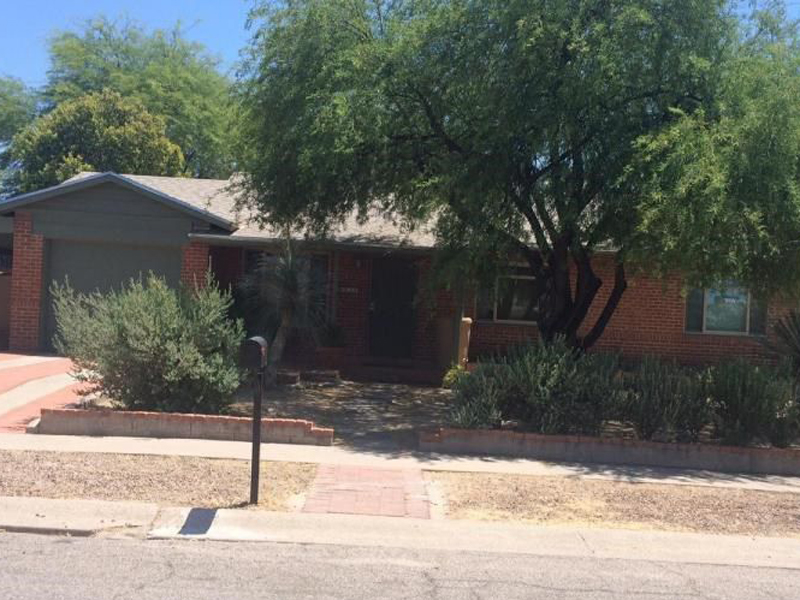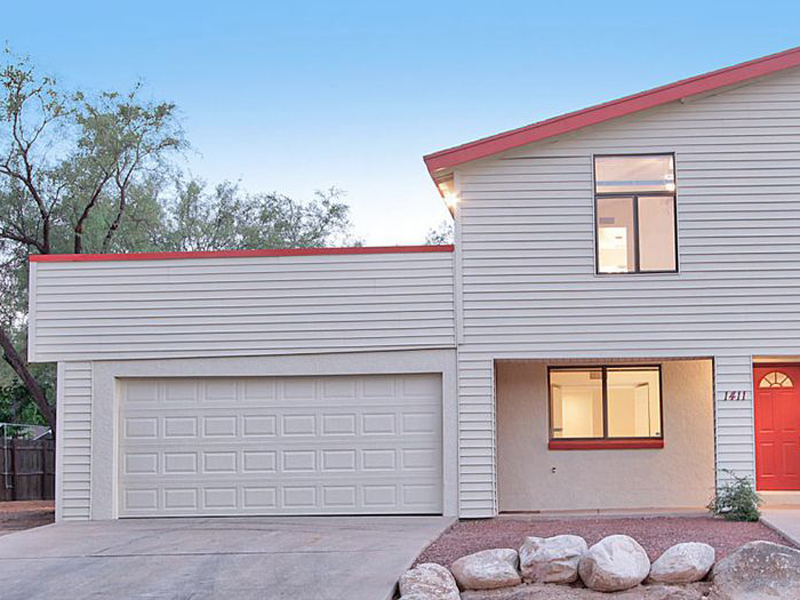Garage Door Troubles - Why It Will not Open up & Exactly How to Take care of
Is Your Garage Door Stuck? Here's What to Do First
When your garage door won't open up, start with these essential security checks prior to trying any type of fixings. First, ensure nobody is standing near the door and that lorries are clear of the opening. Look for apparent indicators of damage like damaged panels, bent tracks, or hanging cable televisions. If you see a snapped springtime or seriously damaged components, quit quickly and call a professional—-- these repair work require customized tools and know-how to deal with safely.

Examine These 6 Things Before Calling an Expert
Prior to assuming you need costly repair services, go through this quick diagnostic list that resolves most garage door troubles:
-
Power source: Validate the opener is plugged in and the outlet is working
-
Remote batteries: Change dead batteries in your remote control
-
Manual lock: Examine if somebody mistakenly involved the hands-on lock
-
Obstructions: Seek particles blocking the door's path or sensors
-
Emergency launch: Make sure the red emergency cord hasn't been drawn
-
Circuit breaker: Confirm the garage circuit hasn't stumbled
These simple checks settle around 70% of garage door issues without requiring specialist treatment.
10 Common Factors Your Garage Door Won't Open
Recognizing why your garage door opener isn't functioning aids you pick the ideal solution. Right here are the most regular causes homeowners encounter:
Dead remote batteries stand for the most basic fix—-- when batteries die, the remote can not send signals to the opener. Power blackouts or tripped breakers cut power to the motor. Broken springtimes avoid the door from raising properly and need prompt professional attention. Sensor imbalance reasons security systems to block door procedure. Track obstructions quit rollers from moving efficiently. Electric motor overload triggers automated shutoffs when the opener finds resistance. Limit switch issues perplex the opener regarding door placement. Cable television damages disrupts the training system. Weather-related problems impact door activity throughout severe temperature levels. Component wear from age progressively lowers system efficiency.
Issue # 1: Dead Push-button Control Batteries
When your wall switch functions but your remote does not, dead batteries are usually the perpetrator. A lot of garage door remotes utilize either 3-volt lithium or 12-volt alkaline batteries. Eliminate the back cover of your remote and examine the battery type. Replace with fresh batteries and check the remote. If it still does not function, you might need to reprogram it to your opener. Consult your opener's guidebook for details reprogramming guidelines, as the procedure varies by supplier.
Trouble # 2: Power Supply Issues
Garage door power problems typically originate from loose links or stumbled circuits. Examine that the opener is firmly plugged into its outlet—-- vibration can loosen up links with time. Check the outlet with an additional tool to confirm it's working. Analyze your home's breaker box for stumbled circuits, particularly if you have actually experienced storms or power changes. GFCI electrical outlets might have tripped and require resetting. If the opener has power yet will not react, the issue likely lies elsewhere in the system.
Problem # 3: Broken or Damaged Springs
Damaged garage door springs are among one of the most hazardous components to deal with. If you listen to a loud bang from your garage or see the door really feels incredibly hefty when attempting to raise manually, a springtime has actually likely snapped. Torsion springs run flat above the door, while extension springtimes sit on either side. Never ever attempt spring repair services yourself—-- these components save remarkable tension that can trigger significant injury or death. Professional substitute typically sets you back $150-$300 however guarantees your security.
Trouble # 4: Obstructed Safety Sensing Units
Modern garage doors feature security sensors that avoid closure when objects are discovered. These sensors can quit the door from opening if they're dirty, misaligned, or blocked by particles. Clean sensing unit lenses with a soft cloth and guarantee absolutely nothing blocks the unnoticeable beam of light between them. Check that sensing units are correctly straightened—-- most have sign lights that show connection condition. Sensing unit issues usually settle with basic cleaning and adjustment.
Issue # 5: Track Obstructions or Damage
Garage door tracks overview rollers as the door moves up and down. Dust, debris, old oil, or tiny items can jam the system. Examine tracks aesthetically and remove any type of obstructions with a brush or towel. Search for dents, flexes, or bending that can impede smooth procedure. Small track changes are feasible for helpful homeowners, but substantial damage needs specialist repair to prevent further troubles or security threats.
Problem # 6: Garage Door Opener Electric Motor Issues
When the garage door motor runs but the door doesn't relocate, several concerns could be accountable. The motor might be overwhelmed and shutting down as a safety measure. Equipment wear, especially in older units, can protect against proper operation. Chain or belt drive problems affect power transmission. If you listen to uncommon grinding, clicking, or humming noises, stop making use of the opener immediately. Motor fixings often set you back more than substitute, especially for units over ten years old.
Detailed DIY Troubleshooting Guide
Follow this organized approach to garage door repairing while focusing on safety and security throughout the process:
Step 1: Evaluate the wall surface button initially. If it works however the remote doesn't, concentrate on remote problems. If neither works, inspect power supply.
Step 2: Analyze the hand-operated launch cord. If it's been pulled, the opener is disengaged from the door. Press the cart back to reconnect.
Step 3: By hand test the door by disengaging the opener and attempting to raise the door by hand. It ought to move efficiently and stay in place when half-open.
Step 4: Check visible parts for damage, paying special interest to springs, cords, and tracks.
Step 5: Inspect all security features consisting of sensing units, restriction buttons, and auto-reverse functions.
Step 6: Examination different controls (remote, wall switch, keypad) to separate the problem source.
Always use shatterproof glass and work gloves when executing examinations, and never ever effort repair work on springtimes or high-tension parts.
When to Call a Professional vs. DIY Solutions

Knowing when to call a garage door specialist versus attempting DIY fixings shields both your safety and security and your budget. Handle these issues yourself: dead remote batteries, power supply troubles, small track cleansing, sensing unit cleansing and placement, and fundamental lubrication.
Never try these fixings on your own: springtime replacement or change, wire repair work, significant track adjustment, electrical wiring issues, opener electric motor substitute, or any type of repair entailing high-tension elements. Specialist technicians have actually specialized tools, training, and insurance coverage to manage dangerous repair services safely.
Think about fixing prices versus substitute prices, specifically for doors over 15 years of ages. Modern garage doors supply far better safety and security features, power effectiveness, and reliability than older versions.
Emergency Situation Garage Door Solutions
When you're stuck with a garage door that will not open and require instant access, comply with these emergency situation treatments:
Handbook Procedure: Pull the red emergency launch cable to disengage the opener. This enables manual operation however needs appropriate technique to prevent injury. Lift the door gradually and evenly, utilizing leg muscle mass as opposed to your back. Many domestic doors evaluate 100-150 pounds, making them manageable for the majority of adults.
Temporary Repairs: If the door opens up by hand however won't keep up, prop it open with sawhorses or clamps—-- never utilize your body or cars as supports. For doors that will not shut entirely, make sure the opening is secured if you must leave.
Emergency situation Solution: Several garage door business use 24/7 emergency solution for scenarios including security worries, caught vehicles, or full system failings. While a lot more pricey than normal service phone calls, emergency fixings provide prompt options when required most.
Safety and security Warning: What NOT to Do
Garage door security calls for recognizing unsafe repairs that must never ever be tried by house owners:
Never ever attempt to repair springtimes—-- they keep sufficient energy to trigger deadly injuries when they snap or are incorrectly handled. Do not require a stuck door—-- this can damage the opener, tracks, or door panels, developing extra pricey issues. Prevent bypassing safety features—-- sensors and auto-reverse devices prevent severe injuries and building damage.
Don't neglect unusual sounds—-- grinding, scuffing, or banging audios show problems that worsen with time. Never use the door if cable televisions are torn or broken—-- the door might drop all of a sudden. Don't try electric fixings unless you're a qualified electrician—-- garage door openers make use of both 120V house existing and low-voltage control circuits.

Preventative Upkeep to Stay Clear Of Future Problems
Routine garage door maintenance avoids most typical issues and expands system life expectancy considerably:
Monthly Jobs: Visual inspection of all components, testing auto-reverse safety and security functions, inspecting and tightening up hardware, and cleaning tracks and sensing units.
Quarterly Jobs: Lubricating all relocating get rid of ideal garage door lubricant, screening manual procedure, and checking weather sealing.
Annual Tasks: Expert evaluation and tune-up, springtime modification if required, and opener maintenance including belt or chain change.
Seasonal Tasks: Preparing for climate extremes, examining insulation, and readjusting opener settings for temperature adjustments.
Constant maintenance expenses much less than emergency situation repairs and ensures reputable procedure year-round.
Garage Door Will Not Open Up Frequently Asked Questions
Why will not my garage door open with the remote yet works with the wall surface button?
This usually indicates dead remote batteries, signal interference, or the need to reprogram the remote. Examine batteries initially, then consult your opener manual for reprogramming instructions.
Can I manually open my garage door if the power is out?
Yes, draw the red emergency situation release cord to disengage the opener, after that raise the door manually. Be gotten ready for the door's full weight and lift with correct strategy to avoid injury.
How do I understand if my garage door spring is damaged?
Signs include a loud bang from the garage, the door feeling exceptionally hefty when raising manually, visible voids in the springtime coils, or the door only opening up a few inches prior to stopping.
Is it secure to use my garage door if it won't open up completely?
No, partial operation suggests mechanical troubles that could get worse suddenly. Stop making use of the door and have it evaluated by a specialist to stop further damage or injury.
What should I do if my garage door opens however will not shut?
Check safety and security sensing units for blockages or misalignment, check out the tracks for debris, and check the auto-reverse function. If these don't resolve the problem, get in touch with an expert.
How much does it set you back to take care of a garage door that will not open?
Prices differ commonly relying on the trouble: battery replacement ($5-$10), specialist medical diagnosis ($50-$100), springtime substitute ($150-$300), or opener replacement ($200-$500).
Can weather affect my garage door's capacity to open?
Yes, severe cold can thicken lubes and affect metal components, while warm can create growth issues. Most issues deal with as temperature levels stabilize, but relentless concerns may need expert focus.
Why does my garage door open up a couple of inches then stop?
This generally suggests broken springs, limit button troubles, or track blockages. The opener's safety features stop procedure when resistance is discovered, stopping damage to the electric motor or door.
Obtain Expert Help for Complex Issues
When do it yourself fixing doesn't solve your garage door troubles, professional service technicians supply the experience and devices needed for secure, enduring repair services. Qualified experts detect problems properly, make use of manufacturer-approved parts, and give service warranties on their work.
Expert services consist of: comprehensive system examinations, springtime and cord replacement, opener fixing and replacement, track positioning and replacement, electric troubleshooting, and emergency situation solution phone calls.
What to expect: upfront prices, certified and insured professionals, same-day service for many repair services, and follow-up maintenance recommendations.
Most garage door companies offer complimentary price quotes for major fixings and can provide immediate options for immediate problems influencing home safety and security or vehicle access.
Getting Your Garage Door Working Again
A garage door that will not open up does not need to ruin your day or damage your how to reset a garage door opener keypad spending plan. Begin with basic troubleshooting steps like checking power, changing batteries, and taking a look at for apparent obstructions. Many issues have quick do it yourself remedies that recover typical operation within mins.
Nonetheless, recognize when specialist help is essential—-- particularly for spring-related concerns, electrical issues, or complex mechanical failings. Attempting dangerous fixings yourself runs the risk of major injury and typically develops much more pricey issues.
Routine upkeep stops most garage door problems and guarantees reputable operation for many years to find. When troubles do take place, address them immediately to prevent more expensive repairs and preserve your home's security and comfort. Whether you need a straightforward battery substitute or complete system overhaul, remedies exist to obtain your garage door functioning smoothly once again.